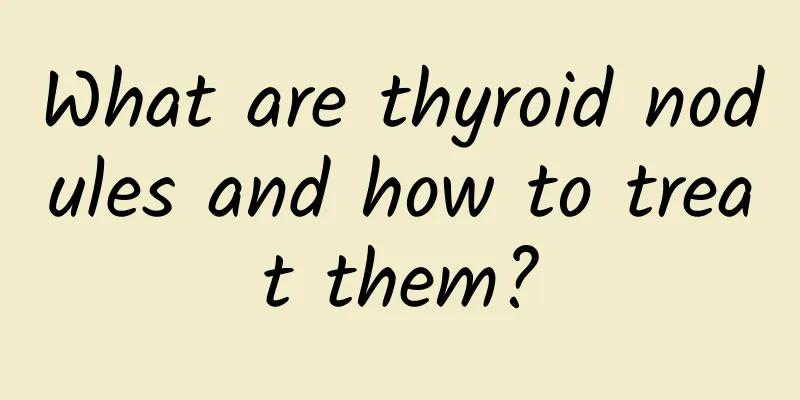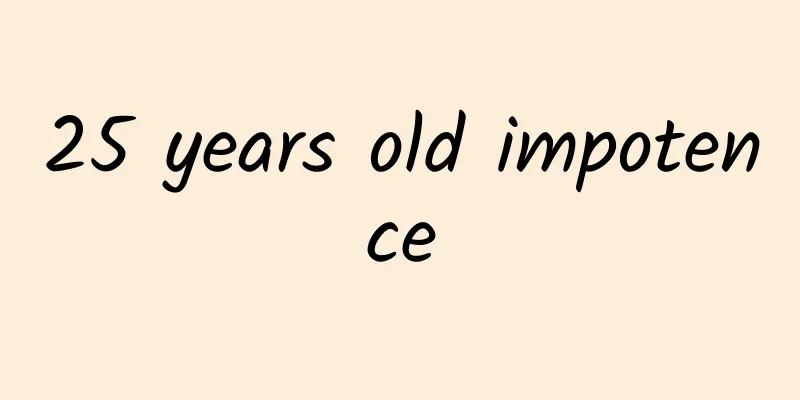What are thyroid nodules and how to treat them?

|
Thyroid nodules can be benign or malignant. Benign nodules mainly include thyroid adenoma, nodular thyroid gland, etc., while malignant nodules mainly include thyroid cancer. What are the symptoms of thyroid nodules? How should thyroid nodules be treated? 1. Symptoms of thyroid nodules 1) Tracheal compression: more common. Compression from one side causes the trachea to shift or bend to the other side; compression from both sides causes the trachea to narrow and make breathing difficult, especially when there is retrosternal thyroid swelling. Long-term compression of the tracheal wall can cause tracheal softening and cause suffocation. 2) Compression of the esophagus: Rare. Only substernal thyroid glands may compress the esophagus, causing discomfort when swallowing, but will not cause obstructive symptoms. 3) Compression of deep large veins in the neck: This can cause difficulty in blood return to the head and neck. This situation is more common in large thyroid glands located at the upper opening of the chest, especially retrosternal thyroid glands. The patient's face is swollen with bluish purple color, and the superficial veins in the neck and chest are significantly dilated. 4) Compression of the recurrent laryngeal nerve: can cause vocal cord paralysis (usually on one side), and the patient's voice becomes hoarse. Compression of the sympathetic nerve ganglia in the neck can cause Horner syndrome, which is extremely rare. 2. Treatment Methods 1) Thyroid hormone: You can take some thyroid hormone preparations to inhibit excessive endogenous TSH secretion and supplement the deficiency of endogenous thyroid hormone to achieve the purpose of alleviating thyroid hyperplasia. It is suitable for thyroid adenoma caused by various causes, especially when the pathological changes are before the occurrence of colloid thyroid adenoma, it can have a significant effect. 2) Iodine supplementation: Iodine supplementation should be reasonable for those who are simply iodine deficient. After supplementation, the thyroid gland can be seen to shrink to varying degrees. 3) Treatment with Chinese medicine: Phlegm-resolving and hard-hard softening method: If only the neck is enlarged without any special subjective symptoms, it is a syndrome of qi stagnation and phlegm accumulation, and the treatment should be phlegm-resolving and hard-hard softening method. 4) Indications for surgical treatment: patients with clinical symptoms caused by compression of the trachea, esophagus or recurrent laryngeal nerve, patients with retrosternal thyroid gland, patients with giant thyroid gland that affects their daily life and work, patients with secondary hyperthyroidism due to nodular thyroid gland, and patients with suspected malignant transformation of nodular thyroid gland. |
<<: What are the dangers of intestinal spasm and how are they caused?
>>: What is thyroid nodule calcification and how is it treated?
Recommend
What should men prepare before undergoing a vasectomy?
Some couples choose to have a vasectomy for contr...
What are the dangers of male genital infection?
As social life becomes more and more affluent, ma...
How can men improve their sexual function?
About 50% of men with erectile dysfunction such a...
What to do if you have testicular pain at night?
The testicle is an important part of the male rep...
What to eat to improve premature ejaculation
Premature ejaculation has become a very common pr...
There are several reasons for male anemia
Male anemia is a symptom caused by malnutrition. ...
Three free and effective remedies for treating kidney deficiency in men
In daily life, when men are trying to relieve kid...
How much pain does induced labor have at 6 months?
After pregnancy, you should take good care of you...
After a month of eating wolfberry
From the basic theory of traditional Chinese medi...
The dangers of early development in boys
As parents, we all hope that our children will ha...
Does smoking cause impotence?
Men often find that they have inexplicable impote...
What are some soups for men to replenish qi and blood?
When it comes to replenishing Qi and blood, many ...
How to prevent premature ejaculation in middle-aged men?
As men age, their sexual function will gradually ...
Semen yellowish brown
Men all know that normal semen should be milky wh...
What medicine is used for annular glansitis?
The disease of annular glansitis will cause a lar...









